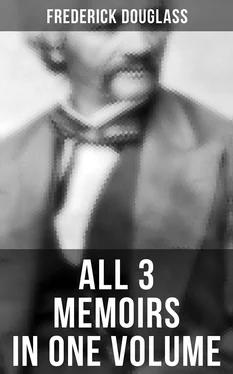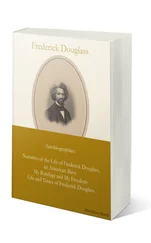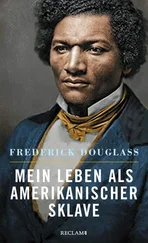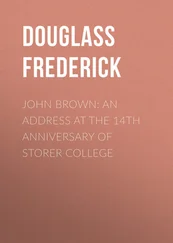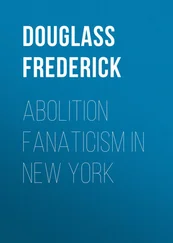I have no doubt that my state of mind had something to do with the change in the treatment adopted, by my once kind mistress toward me. I can easily believe, that my leaden, downcast, and discontented look, was very offensive to her. Poor lady! She did not know my trouble, and I dared not tell her. Could I have freely made her acquainted with the real state of my mind, and given her the reasons therefor, it might have been well for both of us. Her abuse of me fell upon me like the blows of the false prophet upon his ass; she did not know that an angel stood in the way; and—such is the relation of master and slave I could not tell her. Nature had made us friends; slavery made us enemies . My interests were in a direction opposite to hers, and we both had our private thoughts and plans. She aimed to keep me ignorant; and I resolved to know, although knowledge only increased my discontent. My feelings were not the result of any marked cruelty in the treatment I received; they sprung from the consideration of my being a slave at all. It was slavery —not its mere incidents —that I hated. I had been cheated. I saw through the attempt to keep me in ignorance; I saw that slaveholders would have gladly made me believe that they were merely acting under the authority of God, in making a slave of me, and in making slaves of others; and I treated them as robbers and deceivers. The feeding and clothing me well, could not atone for taking my liberty from me. The smiles of my mistress could not remove the deep sorrow that dwelt in my young bosom. Indeed, these, in time, came only to deepen my sorrow. She had changed; and the reader will see that I had changed, too. We were both victims to the same overshadowing evil— she , as mistress, I, as slave. I will not censure her harshly; she cannot censure me, for she knows I speak but the truth, and have acted in my opposition to slavery, just as she herself would have acted, in a reverse of circumstances.
CHAPTER XII. Religious Nature Awakened
Table of Contents
ABOLITIONISTS SPOKEN OF—MY EAGERNESS TO KNOW WHAT THIS WORD MEANT—MY
CONSULTATION OF THE DICTIONARY—INCENDIARY INFORMATION—HOW AND WHERE
DERIVED—THE ENIGMA SOLVED—NATHANIEL TURNER’S INSURRECTION—THE
CHOLERA—RELIGION—FIRST AWAKENED BY A METHODIST MINISTER NAMED
HANSON—MY DEAR AND GOOD OLD COLORED FRIEND, LAWSON—HIS CHARACTER AND
OCCUPATION—HIS INFLUENCE OVER ME—OUR MUTUAL ATTACHMENT—THE COMFORT
I DERIVED FROM HIS TEACHING—NEW HOPES AND ASPIRATIONS—HEAVENLY
LIGHT AMIDST EARTHLY DARKNESS—THE TWO IRISHMEN ON THE WHARF—THEIR
CONVERSATION—HOW I LEARNED TO WRITE—WHAT WERE MY AIMS.
Whilst in the painful state of mind described in the foregoing chapter, almost regretting my very existence, because doomed to a life of bondage, so goaded and so wretched, at times, that I was even tempted to destroy my own life, I was keenly sensitive and eager to know any, and every thing that transpired, having any relation to the subject of slavery. I was all ears, all eyes, whenever the words slave, slavery , dropped from the lips of any white person, and the occasions were not unfrequent when these words became leading ones, in high, social debate, at our house. Every little while, I could hear Master Hugh, or some of his company, speaking with much warmth and excitement about “abolitionists.” Of who or what these were, I was totally ignorant. I found, however, that whatever they might be, they were most cordially hated and soundly abused by slaveholders, of every grade. I very soon discovered, too, that slavery was, in some sort, under consideration, whenever the abolitionists were alluded to. This made the term a very interesting one to me. If a slave, for instance, had made good his escape from slavery, it was generally alleged, that he had been persuaded and assisted by the abolitionists. If, also, a slave killed his master—as was sometimes the case—or struck down his overseer, or set fire to his master’s dwelling, or committed any violence or crime, out of the common way, it was certain to be said, that such a crime was the legitimate fruits of the abolition movement. Hearing such charges often repeated, I, naturally enough, received the impression that abolition—whatever else it might be—could not be unfriendly to the slave, nor very friendly to the slaveholder. I therefore set about finding out, if possible, who and what the abolitionists were, and why they were so obnoxious to the slaveholders. The dictionary afforded me very little help. It taught me that abolition was the “act of abolishing;” but it left me in ignorance at the very point where I most wanted information—and that was, as to the thing to be abolished. A city newspaper, the Baltimore American , gave me the incendiary information denied me by the dictionary. In its columns I found, that, on a certain day, a vast number of petitions and memorials had been presented to congress, praying for the abolition of slavery in the District of Columbia, and for the abolition of the slave trade between the states of the Union. This was enough. The vindictive bitterness, the marked caution, the studied reverse, and the cumbrous ambiguity, practiced by our white folks, when alluding to this subject, was now fully explained. Ever, after that, when I heard the words “abolition,” or “abolition movement,” mentioned, I felt the matter one of a personal concern; and I drew near to listen, when I could do so, without seeming too solicitous and prying. There was HOPE in those words. Ever and anon, too, I could see some terrible denunciation of slavery, in our papers—copied from abolition papers at the north—and the injustice of such denunciation commented on. These I read with avidity. I had a deep satisfaction in the thought, that the rascality of slaveholders was not concealed from the eyes of the world, and that I was not alone in abhorring the cruelty and brutality of slavery. A still deeper train of thought was stirred. I saw that there was fear , as well as rage , in the manner of speaking of the abolitionists. The latter, therefore, I was compelled to regard as having some power in the country; and I felt that they might, possibly, succeed in their designs. When I met with a slave to whom I deemed it safe to talk on the subject, I would impart to him so much of the mystery as I had been able to penetrate. Thus, the light of this grand movement broke in upon my mind, by degrees; and I must say, that, ignorant as I then was of the philosophy of that movement, I believe in it from the first—and I believed in it, partly, because I saw that it alarmed the consciences of slaveholders. The insurrection of Nathaniel Turner had been quelled, but the alarm and terror had not subsided. The cholera was on its way, and the thought was present, that God was angry with the white people because of their slaveholding wickedness, and, therefore, his judgments were abroad in the land. It was impossible for me not to hope much from the abolition movement, when I saw it supported by the Almighty, and armed with DEATH!
Previous to my contemplation of the anti-slavery movement, and its probable results, my mind had been seriously awakened to the subject of religion. I was not more than thirteen years old, when I felt the need of God, as a father and protector. My religious nature was awakened by the preaching of a white Methodist minister, named Hanson. He thought that all men, great and small, bond and free, were sinners in the sight of God; that they were, by nature, rebels against His government; and that they must repent of their sins, and be reconciled to God, through Christ. I cannot say that I had a very distinct notion of what was required of me; but one thing I knew very well—I was wretched, and had no means of making myself otherwise. Moreover, I knew that I could pray for light. I consulted a good colored man, named Charles Johnson; and, in tones of holy affection, he told me to pray, and what to pray for. I was, for weeks, a poor, brokenhearted mourner, traveling through the darkness and misery of doubts and fears. I finally found that change of heart which comes by “casting all one’s care” upon God, and by having faith in Jesus Christ, as the Redeemer, Friend, and Savior of those who diligently seek Him.
Читать дальше
